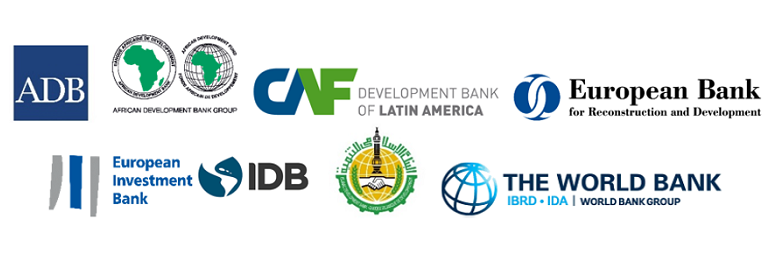
On the occasion of the "The New Urban Agenda and the role of the Multilateral Development Banks" session at Habitat III, the eight MDBs — the Asian Development Bank (ADB), African Development Bank (AfDB), the Development Bank of Latin America (CAF), the European Bank for Reconstruction and Development (EBRD), the European Investment Bank (EIB), the Inter-American Development Bank (IADB), the Islamic Development Bank (ISDB), and the World Bank – presented their plans for working “together to ensure that the programs we support promote a model of urban development that encourages equitable, sustainable, inclusive and productive settlements, including small rural communities, villages, market towns, intermediate cities, and metropolises.”
“The ‘New Urban Agenda’ envisages cities and human settlements that are inclusive, sustainable, and resilient, fostering prosperity and quality of life for all,” said Ede Ijjasz-Vasquez, Senior Director of the World Bank’s Social, Urban, Rural and Resilience Global Practice. “With urban infrastructure financing needs at over $4.5 trillion per year — an amount that cannot be met solely on the basis of existing ODA flows — the urban challenges need innovative financing solutions from all sources: national and local sources, citizens, philanthropies, and MDBs.”
Ijjasz-Vasquez added, “By working together with governments and partners to develop effective and innovative ways to plan, connect, and finance cities, the World Bank believes we can contribute effectively to shaping sustainable long-term urban development. The challenges of urbanization may be immense, but so, too, are the opportunities that come with it. We are ready to embrace this pivotal challenge that will shape the future of our cities and enable us to achieve our goals of eliminating poverty and boosting shared prosperity.”
In line with their respective institutional mandates and governance structures, the organizations committed to foster coordination between urban, regional and national development plans, strengthening planning institutions capabilities, and access to finance at all levels of government and in the private sector.
In their Joint Statement, guided by their institutional mandates and their member countries’ own development goals, they committed to supporting the implementation of the UN "New Urban Agenda" through direct financing, catalyzing other resources, as well as domestic resource mobilization. As such, they are determined to continue working to strengthen domestic financial markets, deepen financial inclusion, and attracting sources of co-financing to enable innovative and concessional funding to address the challenges of the poor and most vulnerable urban residents.
For more details, please see the full Joint Statement.
